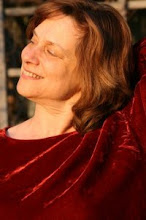I learned of the
Concord Free Press when my husband, Tony Eprile, placed a story in their latest book
IOU: New Writing on Money. (Tony's story, Entrepreneurs, tells a tale of
money, work and witchcraft in an emerging South Africa.) The press's "business" model is giving books away. In lieu of buying a book, the reader gives to charity. So far they've steered more than $140,000 to good causes. I thought, hey, I write about new ways of looking at
money and new ways of looking at publishing -- I need to talk to these guys! So I caught up with Founder/Editor-in-Chief, Stona Fitch, author of several books, most recently
Give + Take.
JDS: Given your publishing model, doing “IOU”, an anthology about money, seems, well, almost inevitable. Were you hoping to spark more discussion about the role of money in our lives? How have people responded?
SF: Yes, IOU is a great fit with our renegade approach to publishing, which makes readers reconsider the value and core purpose of books. Instead of just charging $12.95 for a trade paperback like everyone else, we ask that they give away money to a cause they care about or someone in need. The reader is empowered to figure out the value of the project, book, and overall experience of being part of our experiment in reading and giving. Similarly, the writers in IOU are all rethinking money and its role, and coming up with new insights in their poems, stories, and essays—some dark, some hilarious.
We’ve had an overwhelming reaction to the book—thousands of requests and ongoing donations from all over the world. I think people tend to savor IOU slowly. The editor of IOU, poet/critic Ron Slate, rounded up a remarkably diverse collection. But IOU definitely gets people thinking about money—good, bad, and beyond.
JDS: To what extent is your publishing model a critique of the current publishing industry?
SF: Good question. It’s important to point out that we’re a band of writers, not publishers. The Concord Free Press is about writers taking control and creating a new way to engage with readers. Our writers see their work triggering generosity throughout the world. And they find that extremely rewarding. Plus, our books can (and do) go on to second, commercial lives that make money.
We’re reminding the industry that books have incredible power beyond their ability to generate profits, which most books fail to do anyway. We’re pointing out how a radical rethinking of publishing can work (just a look at our home page confirms that). And we’re sending a positive message about books in a time of doom, gloom, and hand-wringing.
JDS: Do you think some good can come out of the turmoil in the publishing business — the concern that there’s no longer enough money in it? If so, what might that look like?
SF: Publishing has this desperate end-time quality to it now, like fishing with dynamite. I’m hopeful that the turmoil and change will leave the industry stronger, though smaller. There will probably be fewer books, but better published. They’ll be available via multiple channels, in different formats, and at varying price points. Publishers will be leaner, taking advantage of every efficiency-enhancing breakthrough available. And they’ll have to use social networking and other great online resources for establishing real connections with readers vs. simply generating hype. Making money on shorter press runs is a big challenge. But smart publishers can do it.
That said, more and more writers are going to leave the mothership of traditional publishing entirely and simply create and distribute their own books directly to readers. There will be online communities that aggregate fiction writers linked by genre, style, and other common traits. If these writers can continue to provide compelling, original work that attracts fans—without the infrastructure of traditional publishing—they’ll thrive. A fair number of name-brand non-fiction writers are already leading the charge. Fiction writers will follow.
No matter how a book is published, it all comes down to one question—is the work compelling, original, and necessary? Ideally, by asking that question vs. “Can I move 20,000 units at WalMart?” books can become more culturally relevant and important again.
JDS: From scrolling around your website, I get the sense you’re having fun with this. Do you think having fun is important to the creation of good books?
SF: Publishing is fun, from collaborating with writers to designing and packaging the book to sending it out into the world. But making money at publishing is hard. At the Concord Free Press, we’re thankful to be free of the burden of profitability. We don’t envy the editors and publishers who have to struggle with this challenge every day, every book. So yes, we have a lot more fun. And a certain punk-inflected, subversive humor shows through in all aspects of the Concord Free Press—from our website to our books to our media coverage. We’re Billy Bragg to the mainstream publishing industry’s Electric Light Orchestra. We’re the Diggers to their Democratic National Committee. We’re the gentle thumb to their anxious eye.
JDS: The notion of giving away books for free challenges many of our assumptions about “value” and the nature of transactions. Would you say that people are rethinking their approach to material goods? If so, do you attribute this to the recession? Environmentalism?
SF: Yes. While the motivations vary, I sense a lot of people are giving up on conspicuous consumption, probably because it just isn’t that rewarding. Giving away something beautiful and original—for free, to someone who appreciates it—has an incredible power to it. Seeing our books out in the world, inspiring generosity in so many different ways, is really exciting to us. And much more rewarding than any paycheck we could be taking home at the end of the week by selling our books.

 Tony has been photographing doors in Old Jaffa. He pointed me to a quote from the artist/creator of this door, Ran Morin: “I am dealing with earth and olive trees and actual places where there are borders. A Palestinian once told me, ‘Okay we don’t have to fight over the land; we can grow the trees in the sky’.”
Tony has been photographing doors in Old Jaffa. He pointed me to a quote from the artist/creator of this door, Ran Morin: “I am dealing with earth and olive trees and actual places where there are borders. A Palestinian once told me, ‘Okay we don’t have to fight over the land; we can grow the trees in the sky’.”









